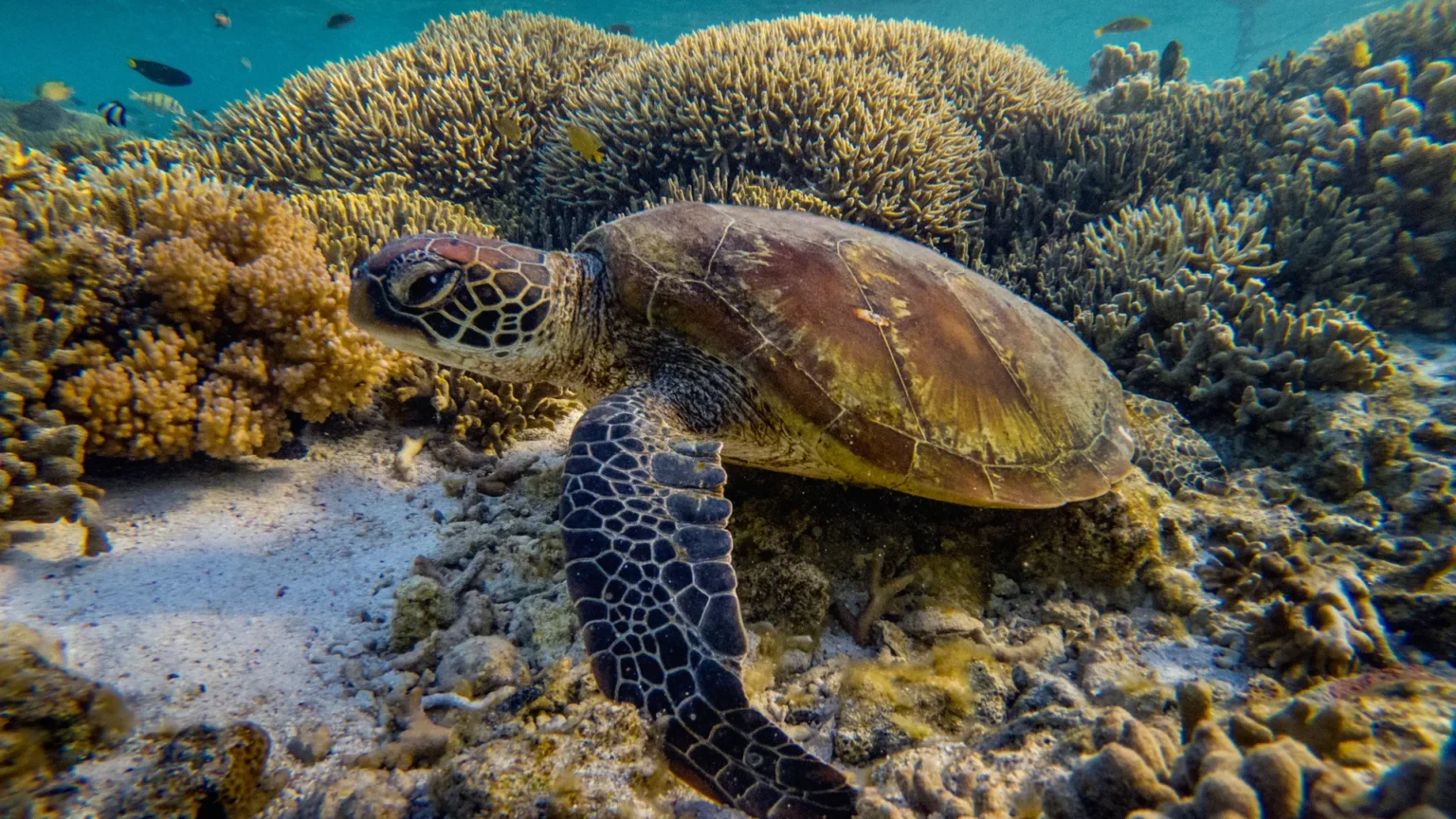Great Barrier Reef Coral Decline Unfolds into National Crisis
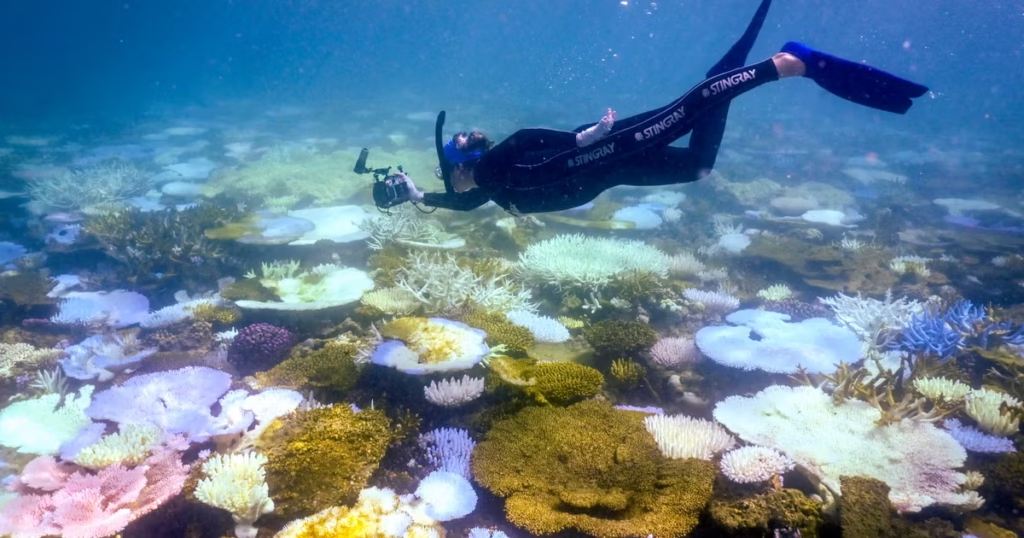
The Great Barrier Reef coral decline has reached unprecedented levels in 2025, according to the latest marine health reports. Stretching over 2,300 kilometers along Australia’s northeastern coast, the reef—long hailed as the world’s largest living structure—is now facing its most severe coral degradation since monitoring began nearly 40 years ago.
Extreme Heat Triggers Widespread Coral Bleaching in Great Barrier Reef
Surveys conducted between August 2024 and May 2025 revealed extensive bleaching across the reef’s northern and southern regions. Experts point to extreme heat stress, fueled primarily by climate change, as the dominant factor in the widespread coral loss. Warmer waters have pushed many coral species beyond their thermal limits, resulting in bleaching events where corals expel their symbiotic algae and turn ghostly white.
Frequent Disasters Hinder Coral Recovery in Great Barrier Reef
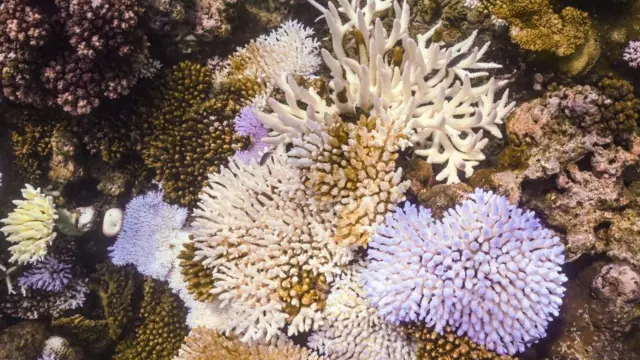
The Australian Institute of Marine Science (AIMS) warned that the reef may be approaching a tipping point. If environmental conditions continue to deteriorate, corals might not recover fast enough between events like heatwaves, storms, and starfish outbreaks. The report suggests the reef now faces a “volatile and uncertain future.”
Acropora Coral Species Hit Hard
Among the most affected species are Acropora corals, known for their fast growth but also their vulnerability to heat stress. These branching corals also happen to be a preferred food source for crown-of-thorns starfish, further compounding their decline.
Starfish Infestations Accelerate Coral Decline in Great Barrier Reef
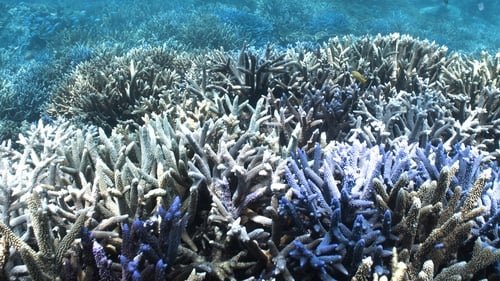
Despite some success with starfish control programs, these creatures remain a major threat. Capable of consuming large swathes of coral, their population has surged due to nutrient run-off from agricultural activities. In 2025, no major outbreaks were recorded in central reef zones, largely thanks to continued efforts to inject starfish with ox bile or vinegar, curbing their growth.
Dual Disaster: Ningaloo Reef Also Bleached
For the first time ever, both the Great Barrier Reef and Ningaloo Reef—Australia’s second-largest coral system—experienced simultaneous bleaching in 2025. The dual event underscores the scale of ocean warming across the region and raises alarms about the long-term sustainability of coral ecosystems.
What Causes Coral Bleaching and Great Barrier Reef Coral Decline?
Coral bleaching occurs when water temperatures exceed normal levels for extended periods. If the ocean warms just 1°C above a coral’s thermal limit for two months, the coral becomes stressed and may bleach. Prolonged exposure or higher temperatures can lead to irreversible damage and death.
Climate Change and El Niño: A Deadly Combination
While climate change remains the primary driver of ocean warming, natural cycles like El Niño amplify its effects. The result is prolonged periods of warm water across tropical seas, triggering more frequent and severe bleaching episodes. Great Barrier Reef coral decline.
A Call for Global Action
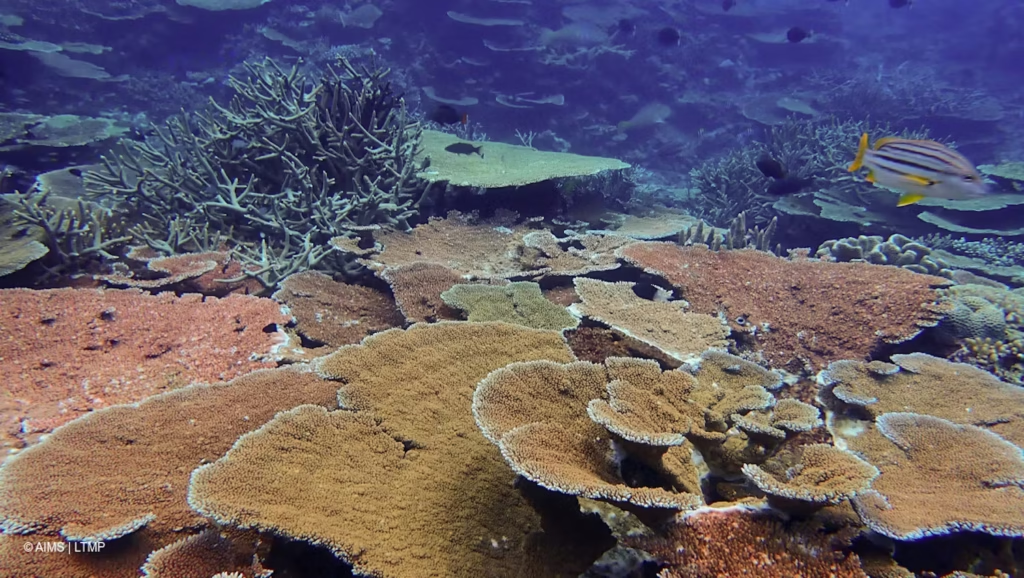
Environmental experts warn that without bold climate action, the Great Barrier Reef could suffer irreversible damage. Richard Leck of a global conservation organization noted that some reefs globally have already passed the point of no return. The Great Barrier Reef might be next if emissions are not rapidly curtailed.
Coral’s Role in Marine Ecosystems
Often referred to as the “architect of the sea,” coral plays a critical role in marine biodiversity. Coral reefs are home to around 25% of all marine species, making their protection vital not just for Australia, but for the health of global oceans.
A Legacy at Risk: Heritage and Biodiversity
Having been heritage-listed for over 40 years, the Great Barrier Reef is a global icon. But with warming seas and increasing pollution, it now faces a growing threat. International bodies have raised concerns that it could soon be reclassified as “in danger”, reflecting its deteriorating condition.
Is Recovery Still Possible?
Despite the grim outlook, researchers remain hopeful. Coral has shown the ability to rebound—but only when environmental stressors are reduced. Recovery depends on reducing emissions, limiting coastal pollution, and controlling starfish outbreaks.
“The reef has shown an incredible ability to recover when given the chance,” said a lead marine scientist. “But time is running out.” Great Barrier Reef coral decline.
